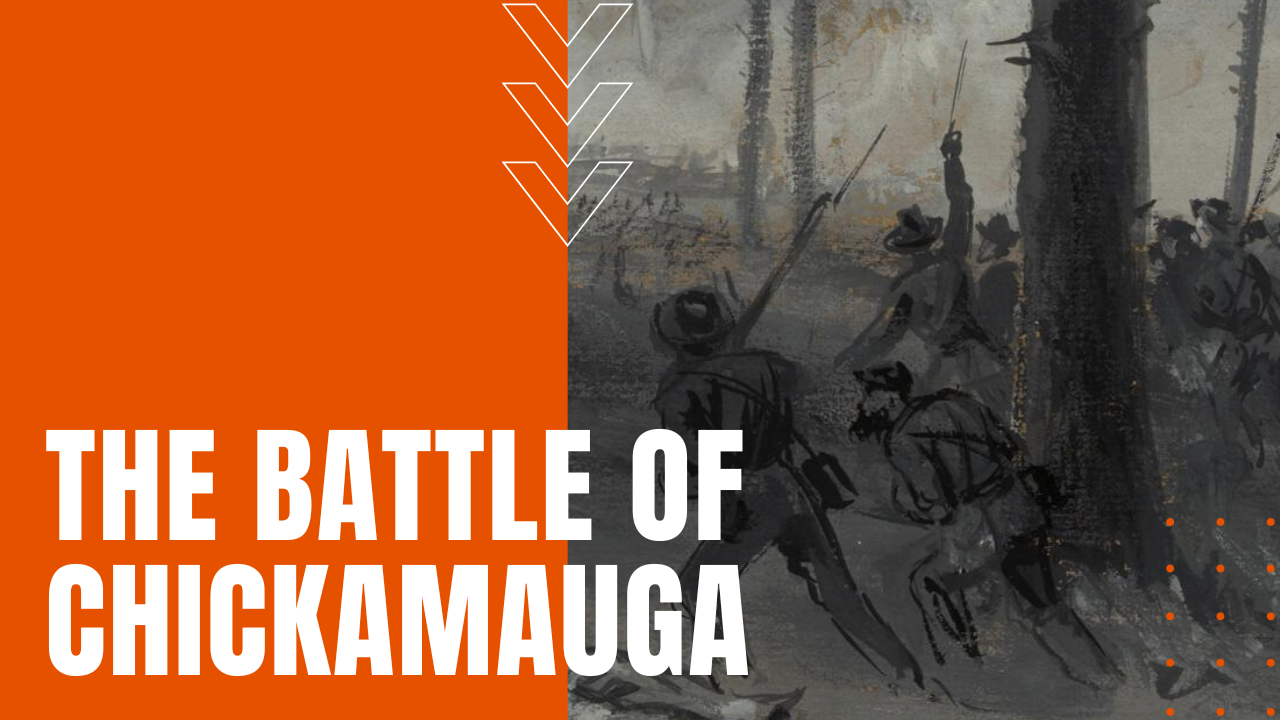The Battle of Chickamauga

In a bid to control the vital railhead city of Chattanooga Tennessee, by mid-September, 1863, Union General William Rosecrans managed to push General Braxton Bragg’s Army of the Tennessee some twelve miles southwest of the city. In a moment of low-point morale within the Confederate army, on news that General James Longstreet’s men were on the march to shore up Bragg’s forces, with some 65,000 men at his command, Bragg felt confident that his numerical advantage over Union forces would win the day and retake the key railheads of Chattanooga.
Battle Begins
On the morning of September 19th, the two armies converged on one another in a forest lining the banks of Chickamauga Creek, where Bragg ordered repeated attacks on the Union’s left flank, led by Union General George Thomas—a West Point graduate and Virginia native who remained loyal to the Union cause despite his Confederate birthright.
Heavy Losses
After a day of egregious losses on both sides, when Longstreet finally arrived with two more brigades, Bragg chose to split his army into two fighting wings—Longstreet commanding the left, while General Leonidas Polk led the right. Advancing at 11:30 the next day, by pure chance, Longstreet’s men caught Rosecrans in a re-flanking maneuver, allowing rebel forces to punch through a weakened gap in the Union line, forcing a chaotic retreat toward Chattanooga by federal troops.
Rock of Chickamauga
Despite his depleted numbers, Thomas and a contingent of steadfast men held the field until nightfall, earning the nickname the “Rock of Chickamauga” for his committed resolve. The following morning, after Thomas and his men retreated for Chattanooga under the cover of darkness, Confederate Generals Longstreet and Nathan Bedford Forrest pleaded with Bragg to pursue the defeated Union army, yet Bragg failed to act due to his loss of ten Confederate generals and some 20,000 rebel soldiers, against Union casualties of nearly 16,000, making the Battle of Chickamauga the costliest two-day engagement in the Civil War’s western theater.
Changing Fortunes of War
Bragg’s inaction allowed Union forces to retake the safety of Chattanooga, leading to the Confederate’s reversal of fortune during the November Battle of Chattanooga, making the Battle of Chickamauga, the second most deadly engagement of the American Civil War.
